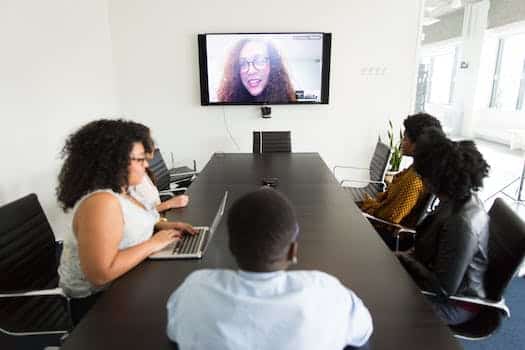In today’s digital age, remote work is becoming increasingly popular, and with it, the need for effective team-building strategies. Building a strong team is essential for any organization to thrive, and remote teams are no exception. In fact, remote teams face unique challenges that require specialized approaches. In this article, we will explore 10 remote team-building strategies that can help your team work better together and achieve common goals.
- 1. Introduction
- 1.1. The importance of team-building
- 1.2. Challenges of remote team-building
- 1.3. Benefits of remote team-building
- 2. Communication Strategies
- 2.1. Establishing communication protocols
- 2.2. Encourage open communication
- 2.3. Using video conferencing tools
- 2.4. Providing regular feedback
- 2.5. Building rapport through informal communication
- 3. Collaboration Strategies
- 3.1. Establishing clear goals and expectations
- 3.2. Using collaboration tools
- 3.3. Encouraging participation in team projects
- 3.4. Providing opportunities for skill development
- 3.5. Encouraging cross-functional collaboration
- 4. Cultural Strategies
1. Introduction
As remote work becomes more prevalent, team-building strategies are more important than ever. While it may seem difficult to build a strong team when everyone is working from different locations, there are many effective remote team-building strategies that can help improve teamwork. In this article, we will explore 10 remote team-building strategies that can help your team work together more effectively.
1.1. The importance of team-building
Team-building is an essential aspect of developing a successful remote team. As companies increasingly rely on remote teams, the need for effective team-building strategies becomes more important than ever. Building a strong team can help to improve communication, collaboration, and productivity, and can ultimately lead to more successful outcomes. In this article, we will discuss ten remote team-building strategies that can help you to improve teamwork and build a stronger, more cohesive team.
1.2. Challenges of remote team-building
Remote team-building has become increasingly challenging in today’s work environment. The lack of face-to-face interactions and physical proximity can make it difficult for team members to bond and develop trust. Additionally, communication and collaboration can be hindered by technology issues or time zone differences. These challenges can lead to feelings of isolation, disengagement, and decreased productivity. However, with the right strategies and tools in place, remote team-building can be successful and lead to stronger teamwork.
1.3. Benefits of remote team-building
Remote team-building has become increasingly important in today’s workforce. With more and more companies transitioning to remote work environments, it is crucial to find strategies that foster teamwork and collaboration among team members who may never meet face-to-face. Fortunately, there are many benefits to remote team-building, including improved communication, increased productivity, enhanced creativity, and a stronger sense of camaraderie among team members. In this article, we will explore 10 effective remote team-building strategies that can help your team work together more efficiently and effectively.
2. Communication Strategies
Effective communication is the key to successful remote team-building. It is important to establish clear lines of communication and ensure that everyone on the team is aware of how to reach each other. This includes setting up regular check-ins, using video conferencing tools, and utilizing instant messaging platforms. Additionally, it is important to encourage open and honest communication and to create a culture where team members feel comfortable sharing their ideas and opinions. By implementing strong communication strategies, remote teams can build better relationships and work more effectively together.
2.1. Establishing communication protocols
Establishing effective communication protocols is essential for remote teams to work together successfully. Without clear guidelines and expectations, misunderstandings and confusion can arise, leading to decreased productivity and morale. Communication strategies should include regular check-ins, both individually and as a team, utilizing various communication channels such as email, instant messaging, video conferencing, and project management tools. Additionally, establishing a system for sharing important updates and information, as well as setting clear boundaries for availability and response times, can help ensure that everyone is on the same page and working towards shared goals.
2.2. Encourage open communication
One of the most important aspects of remote team-building is encouraging open communication. When team members are working remotely, it’s easy for communication to break down and for misunderstandings to occur. To prevent this from happening, it’s important to establish clear lines of communication from the outset. This might involve setting up regular team meetings, using video conferencing software to facilitate face-to-face conversations, or creating a shared online workspace where team members can collaborate and communicate in real-time. Whatever approach you take, make sure that everyone on the team is aware of the communication channels that are available to them and how they can use them effectively.
2.3. Using video conferencing tools
Video conferencing tools have become a crucial part of communication strategies for remote teams. With the ability to hold virtual meetings, share screens, and collaborate in real-time, these tools have made it easier for team members to stay connected and work together effectively. Some popular video conferencing tools include Zoom, Skype, Google Meet, and Microsoft Teams. By using these tools, remote teams can stay on top of their work, build better relationships, and ultimately achieve their goals together.
2.4. Providing regular feedback
Regular feedback is essential for remote team-building. It is important to have open lines of communication and establish clear expectations for feedback. Schedule regular check-ins with team members and encourage them to provide feedback on their work and the overall team dynamic. Use technology tools such as video conferencing, instant messaging, and collaboration software to facilitate communication and keep team members connected. Providing regular feedback not only helps to improve teamwork but also helps to build trust and strengthen relationships among team members.
2.5. Building rapport through informal communication
Informal communication is crucial in building rapport among remote team members. It helps create a relaxed and friendly atmosphere, which can lead to better collaboration and teamwork. Some effective ways to promote informal communication include starting team meetings with personal check-ins, creating a virtual water cooler space for casual conversations, and encouraging team members to share their hobbies and interests. By building connections beyond work-related tasks, remote teams can strengthen their bonds and improve their overall performance.
3. Collaboration Strategies
Collaboration is essential for remote teams to work effectively and efficiently. Here are 10 collaboration strategies to improve remote team-building: 1) Set clear goals and expectations, 2) Establish communication protocols, 3) Use the right tools, 4) Schedule regular check-ins, 5) Encourage open communication, 6) Foster team bonding, 7) Celebrate successes, 8) Address conflicts promptly, 9) Provide constructive feedback, and 10) Recognize individual contributions. By implementing these strategies, remote teams can build better teamwork and achieve their goals.
3.1. Establishing clear goals and expectations
Before implementing any remote team-building strategies, it is important to establish clear goals and expectations for the team. This includes setting measurable objectives, outlining roles and responsibilities, and communicating clearly about deadlines and expectations. By establishing clear goals and expectations, remote teams can work together more effectively and efficiently, leading to better teamwork overall.
3.2. Using collaboration tools
Collaboration tools are essential for remote teams to work together effectively. With the right tools, teams can communicate and collaborate seamlessly, no matter where they are located. Some popular collaboration tools include video conferencing software, project management tools, and instant messaging apps. Video conferencing software, such as Zoom or Skype, allows teams to hold virtual meetings and discussions. Project management tools, such as Trello or Asana, help teams stay organized and on track with their tasks. Instant messaging apps, such as Slack or Microsoft Teams, allow teams to communicate quickly and efficiently. By utilizing these collaboration tools, remote teams can improve their productivity, communication, and overall teamwork.
3.3. Encouraging participation in team projects
Encouraging participation in team projects is essential for effective collaboration. One way to achieve this is by setting clear expectations and goals for each team member. This helps to ensure that everyone understands their role in the project and what is expected of them. Additionally, providing regular feedback and recognition for contributions can also help to motivate team members and encourage them to stay engaged. Another effective strategy is to create opportunities for team members to collaborate and communicate regularly, whether through virtual meetings or online chat channels. By fostering a culture of open communication and collaboration, you can help to build a strong and cohesive team that is committed to achieving its goals.
3.4. Providing opportunities for skill development
Remote team-building strategies should not only focus on improving communication and fostering a sense of community, but also on providing opportunities for skill development. By giving team members the chance to learn new skills and improve existing ones, you can not only enhance the capabilities of your team, but also keep them engaged and motivated. Some effective ways to provide skill development opportunities include offering training programs, assigning challenging projects, and encouraging cross-functional collaboration. By collaborating with colleagues from different departments or areas of expertise, team members can learn from each other and gain new perspectives that can enhance their skills and knowledge.
3.5. Encouraging cross-functional collaboration
Encouraging cross-functional collaboration is essential for remote teams to achieve better teamwork. This can be achieved by creating a culture that values different perspectives and encourages individuals to share their ideas and expertise. One way to promote cross-functional collaboration is to assign team members from different departments or areas of expertise to work together on a project. Another strategy is to hold regular virtual brainstorming sessions where team members can share their ideas and collaborate on solutions to common challenges. By encouraging cross-functional collaboration, remote teams can leverage the strengths and expertise of each team member to achieve better results.
4. Cultural Strategies
Cultural strategies for remote team-building are crucial to ensure that all team members feel valued and included. Encouraging team members to share their cultural backgrounds, traditions, and values can help build understanding and trust between team members. Creating opportunities for virtual team-building activities that incorporate cultural elements can also be effective. For example, organizing a virtual potluck where team members share traditional dishes from their cultures can be a fun and engaging way to learn about each other’s backgrounds. Additionally, implementing a diversity and inclusion training program can help team members understand and appreciate the differences among them, leading to better collaboration and teamwork.
4.1. Building a strong team culture
Building a strong team culture is essential for remote teams to succeed. Without a physical office to bring everyone together, it can be challenging to create a sense of unity and shared purpose. By implementing cultural strategies, remote teams can build stronger relationships and work together more effectively. These strategies can include regular communication, team-building activities, and shared values and goals. By prioritizing team culture, remote teams can create a more positive and productive work environment.
4.2. Encouraging diversity and inclusion
Encouraging diversity and inclusion within a remote team is essential for creating a positive and productive work environment. Cultural strategies can help to ensure that all team members feel valued and respected, regardless of their background or identity. Some effective strategies may include holding cultural awareness training sessions, celebrating diverse holidays and traditions, and encouraging open and honest communication about cultural differences. By prioritizing diversity and inclusion, remote teams can build stronger relationships, improve collaboration, and ultimately achieve greater success.
4.3. Providing opportunities for team bonding
Providing opportunities for team bonding is crucial for remote teams to build a sense of camaraderie and trust. This can be achieved through virtual team-building activities such as online games, virtual happy hours, or team challenges. It is also important to encourage team members to share personal stories and interests to create a more personal connection. Remote team-building events such as virtual escape rooms, cooking classes, or mindfulness sessions can also provide a fun and engaging way to connect with colleagues. By providing opportunities for team bonding, remote teams can foster a sense of community and collaboration that is essential for effective teamwork.
4.5. Providing cultural training
Providing cultural training for remote team members is crucial for successful team-building and effective collaboration. It is important to establish a shared understanding of cultural differences and norms to avoid misunderstandings and conflicts. Cultural training can include language and communication training, understanding cultural values and behaviors, and learning about different work styles. Providing this type of training can help remote team members feel more connected and valued, leading to better teamwork and productivity.
Conclusion
In conclusion, remote team-building is essential for better teamwork. By implementing these 10 strategies, you can help your team thrive and reach its full potential, even when working from different locations.





